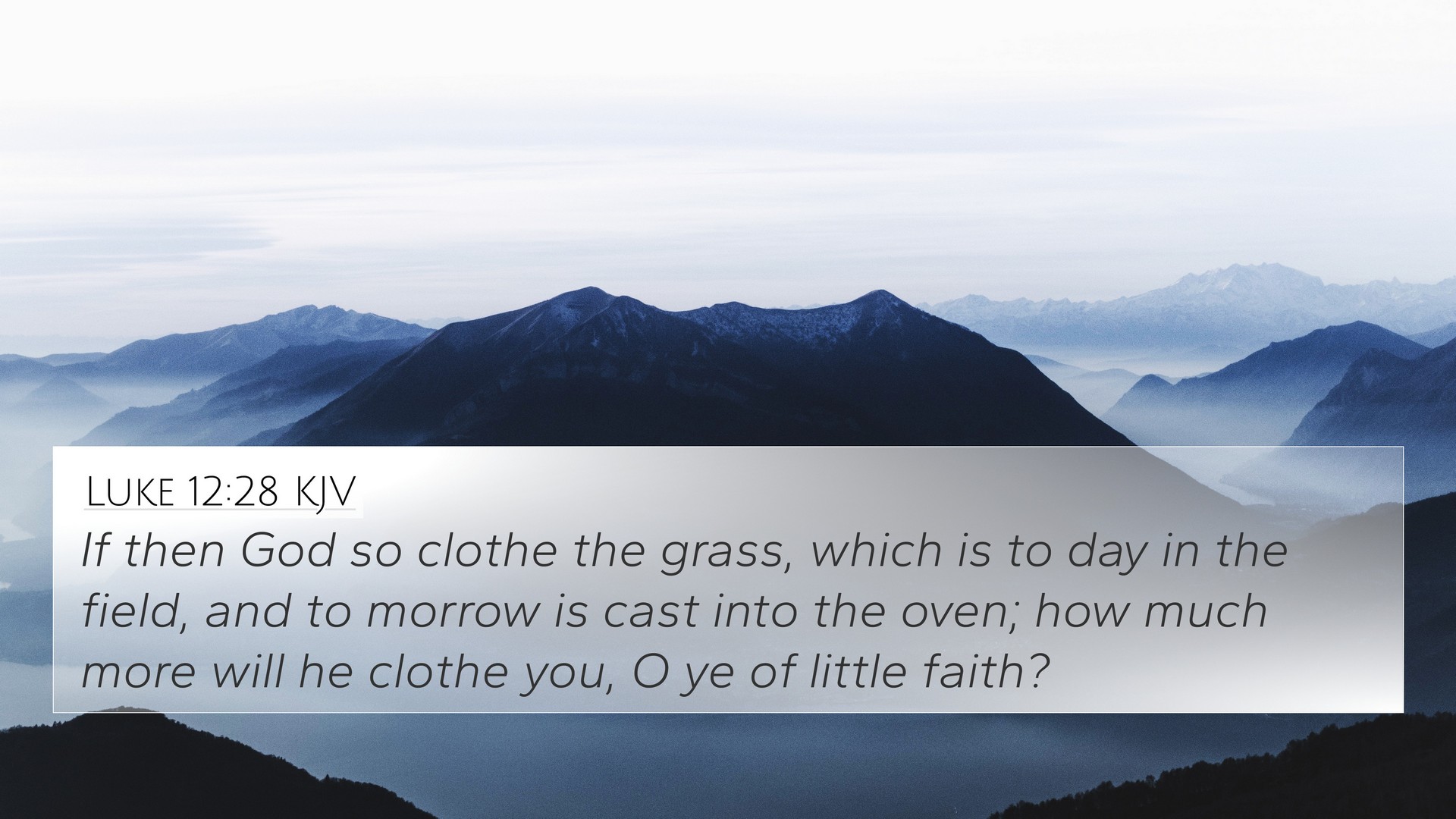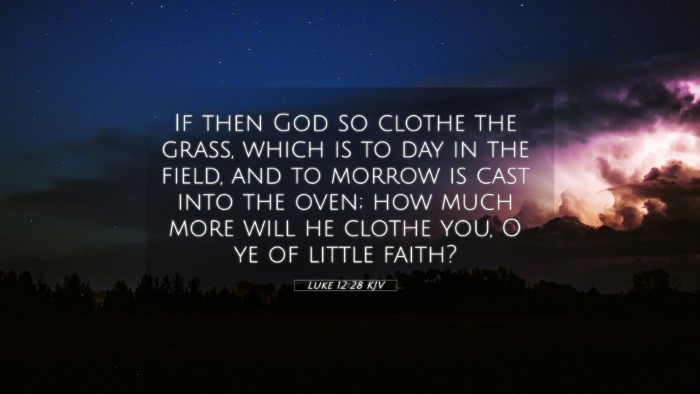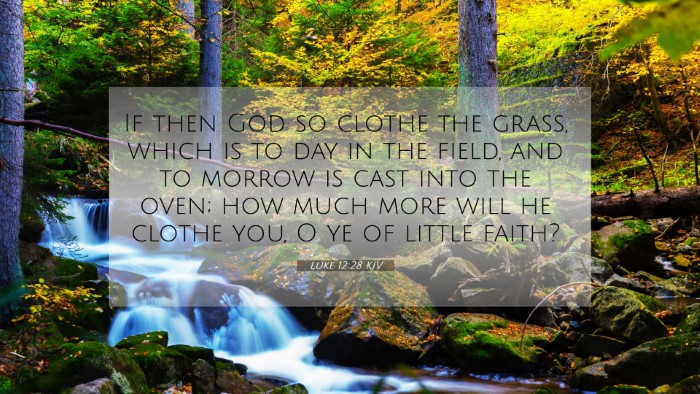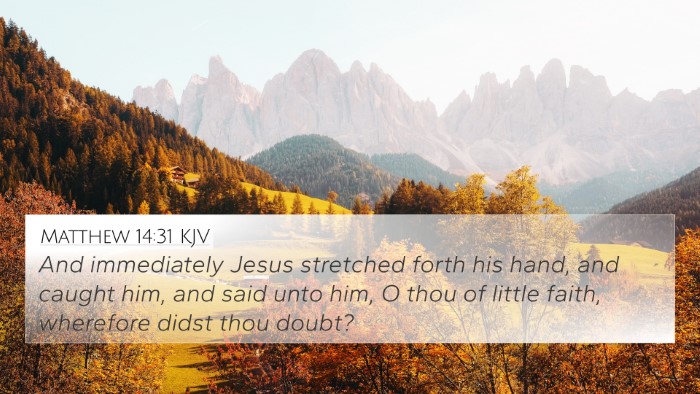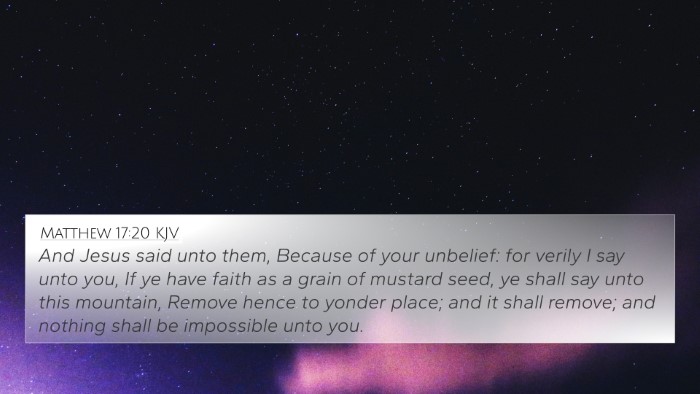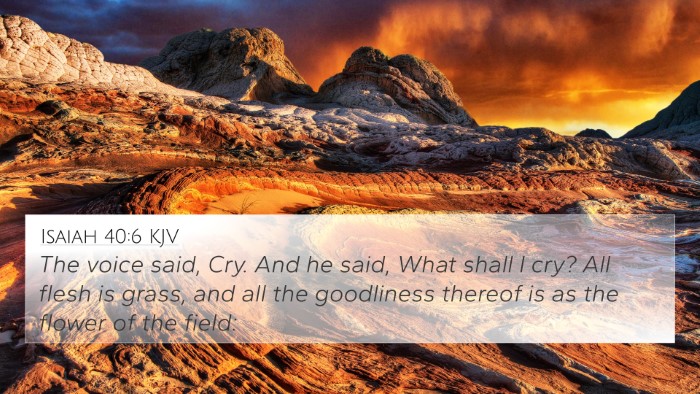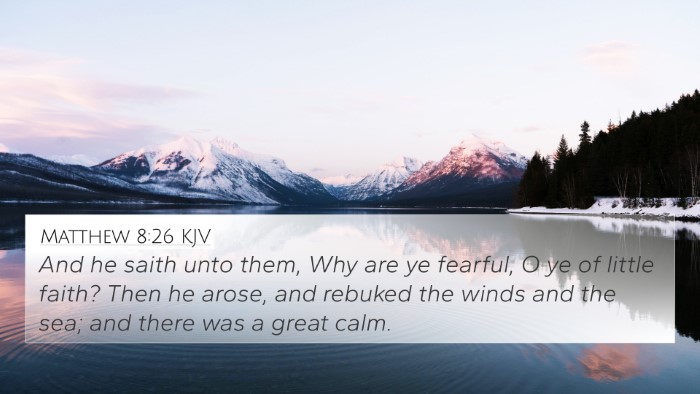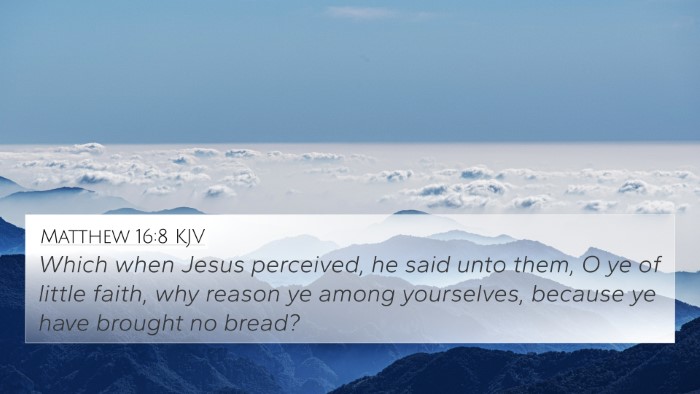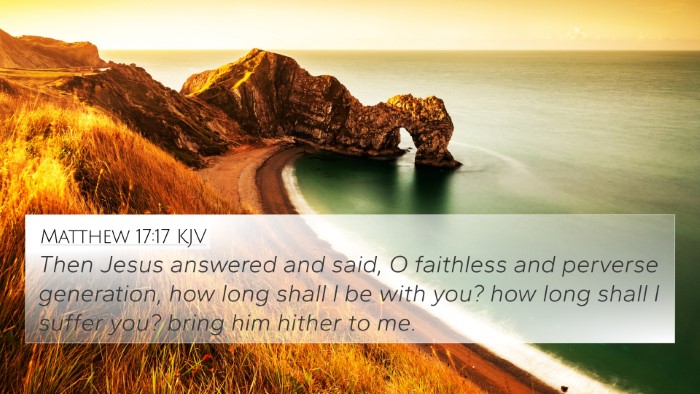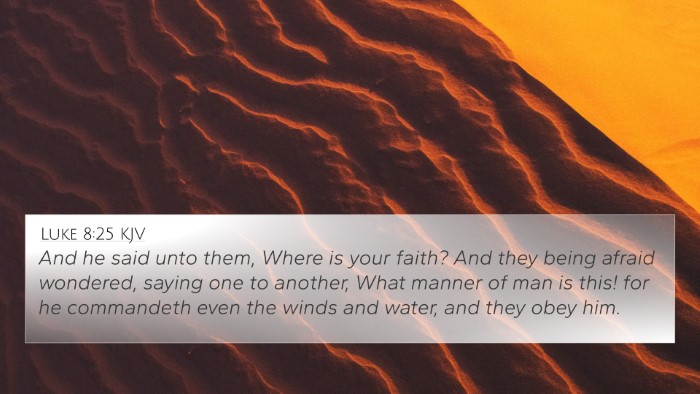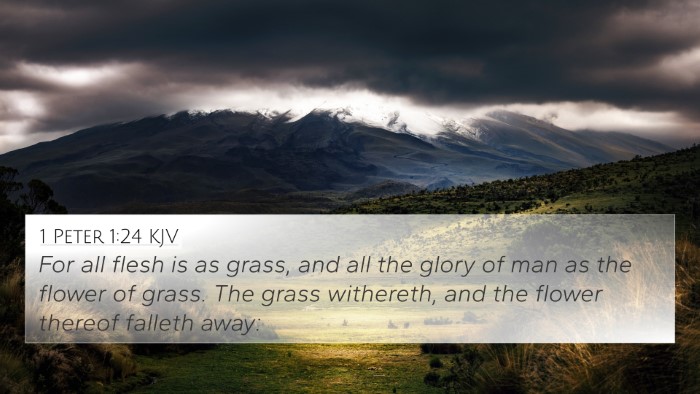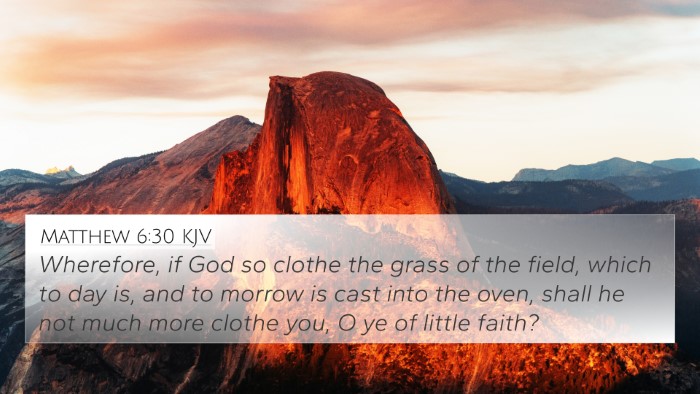Understanding Luke 12:28
Luke 12:28 states:
"If then God so clothes the grass, which is today in the field and tomorrow is thrown into the oven, how much more will He clothe you, O you of little faith?"
This verse emphasizes God's provision and the importance of faith in Him. Below is a combined analysis from multiple public domain commentaries that interpret this scripture.
Summary of Commentary Insights
This verse provides a profound insight into God's care for His creation. It draws a comparison between the temporary nature of the grass and the eternal value placed on human beings. Here’s a thematic breakdown based on the commentaries:
- Provision of God: The verse highlights how God takes care of even the smallest aspects of His creation, such as the grass. Matthew Henry notes that if God cares for the grass which is indeed ephemeral, He will certainly care for His people.
- Faith and Doubt: The phrase "O you of little faith" points out the common struggle with trust in God’s provision. Albert Barnes emphasizes the need for stronger faith, implying that worry often leads to doubt about God's goodness.
- Comparison to Grass: Adam Clarke explains the analogy of grass, indicating its role in the natural cycle and how it illustrates God’s transient blessings in life. This accentuates the idea of divine beauty as found in simplicity.
Cross-References and Thematic Connections
To further deepen our understanding, here are 10 Bible cross-references that relate to the themes of faith, provision, and God's care as depicted in Luke 12:28:
- Matthew 6:26: This verse emphasizes how God feeds the birds of the air and reassures His people of their worth.
- Philippians 4:19: It affirms that God supplies all our needs according to His riches in glory.
- 1 Peter 5:7: Encourages believers to cast their anxieties on Him, reinforcing trust in His care.
- Psalm 104:14-15: Discusses God's provision for creatures including the grass, affirming His creative care.
- Matthew 10:31: Jesus reiterates human worth compared to sparrows, promoting trust in divine oversight.
- Isaiah 40:30-31: Encourages those who trust in the Lord to find strength and renewal—emphasizing faith over worry.
- Luke 12:22-23: Preceding verses that directly discuss the futility of worrying about material needs, encouraging reliance on God.
- James 1:6: Connects with the theme of faith and asks believers to trust without doubt, akin to trusting God's provision.
- Matthew 7:9-11: This passage discusses how earthly fathers provide for their children, underpinning the argument of God's generosity.
- Hebrews 13:5: This teaches believers about contentment and the promise of God's constant presence and provision.
Tools and Resources for Cross-Referencing
For those seeking to deepen their understanding of such connections, it is beneficial to explore tools for Bible cross-referencing. Here are some recommendations:
- Bible Concordance: A comprehensive tool for locating words and themes across scriptures.
- Cross-Reference Bible Study: Techniques that allow readers to explore the scriptural interconnections effectively.
- Bible Cross-Reference Guide: References that help navigate themes and related verses adequately.
- Comprehensive Bible Cross-Reference Materials: Offers detailed studies of themes across books, assisting in deeper exploration.
- Inter-Biblical Dialogue: Analyzing how themes resonate across different parts of the Bible.
Conclusion
Luke 12:28 serves as a powerful reminder of God's provision and the faith that believers are encouraged to cultivate. The connections drawn through cross-references enhance understanding and provide a wider perspective of Biblical themes.
Through cross-referencing Biblical texts, one can find reassurance in God’s care, understanding the relationship between God’s creation, faith, and His providential hand. As believers engage with these scriptures, they are invited into a deeper relationship with God, learning to trust in His goodness and care, just as He cares for the grass of the field.
